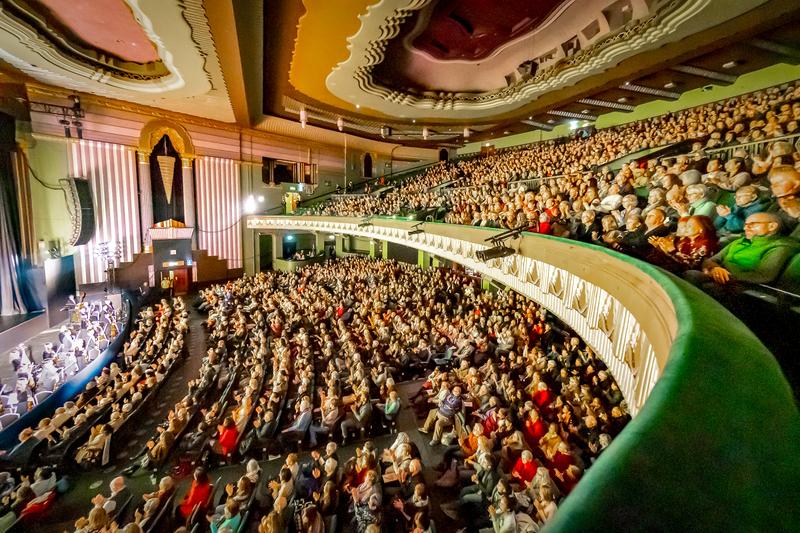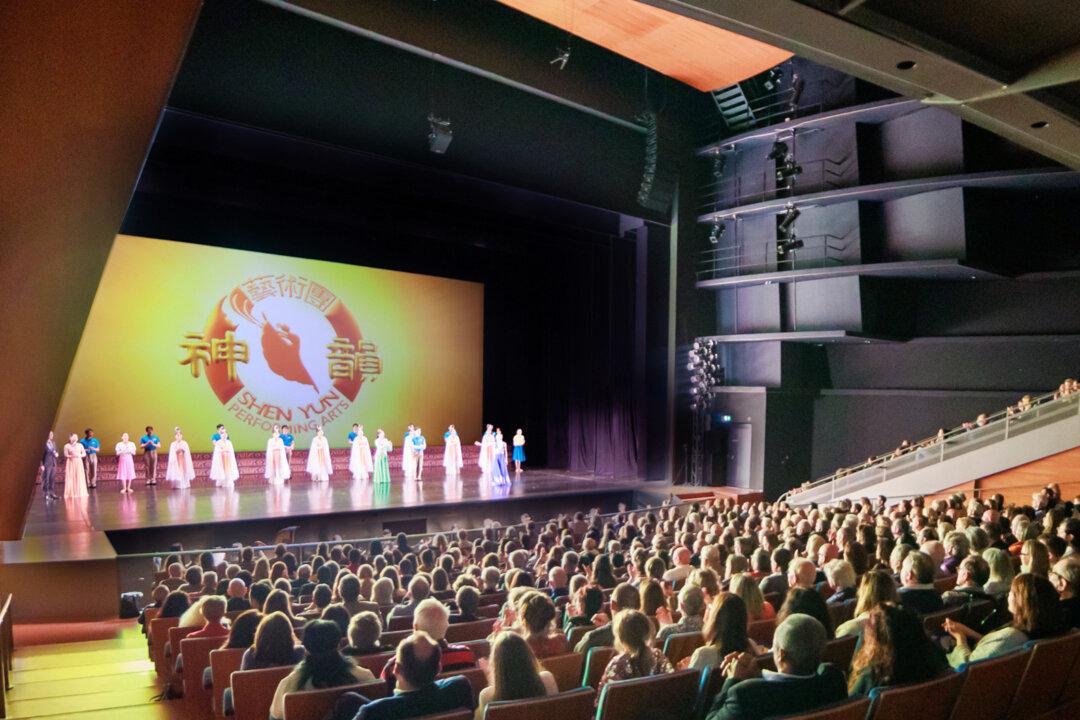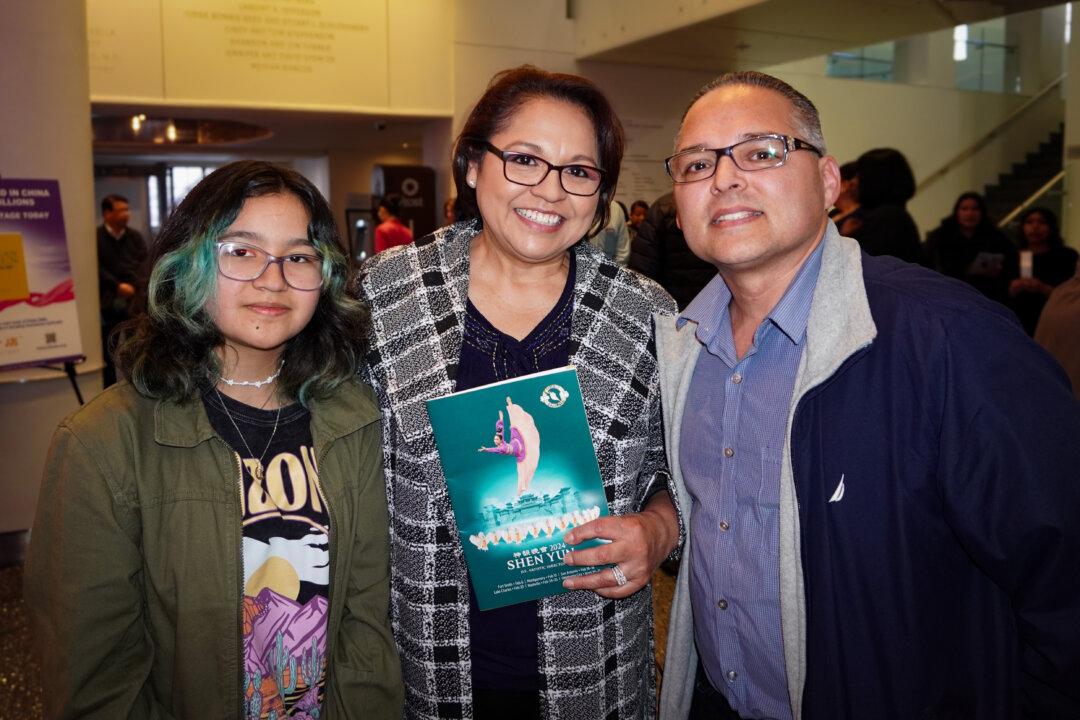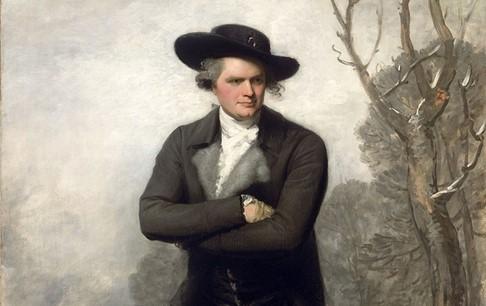PINE BUSH—On a clear Sunday afternoon Isabel Meszaros took an Uber taxi for almost 30-miles from Cold Spring on the Hudson River to Juckas Stables near Middletown. Meszaros and friend David Hall wanted to celebrate her birthday on Feb. 7 by riding horses.
“I love horses and horseback riding,” Meszaros said. She and Hall live in New York City. “I wanted to get out of the city and do something that reminded me of home. So we came up here to go riding,” Meszaros said. Hall said there were horse farms on the street where he grew up in Brooklyn.
Karen Juckas, owner of Juckas Stables, was happy to comply. After the ride, Juckas found them a taxi to a nearby train station for the trip back to the city.
Customers may come on weekends when the stable is open and are given one of the 15 horses in Juckas’ stable—all docile, friendly, and well-groomed in their heavy winter coats. “They have a thick coat because they are outside most of the time,” Juckas said.
Several horses are bridled in the barn. A majestic 1600 lb. white Percheron named Romeo allows wrangler Denise Storm to brush flakes of dried mud from his flanks. “He’s very, very gentle,” said Juckas. “At the end of the day we turn them out. The first thing they do is go in the mud and roll in the mud.” Diesel shifts his weight near Romeo. Popcorn stands sentry near the open barn door.
Two are in stalls. Juckas said the seven-year-old named Yuma is one of her youngest and was given to her. A friend wanted no one else to have it. She is cautious when accepting a horse for free. “A free horse is never free. Sometimes it’s wonderful and sometimes it’s a pain. He happens to be a good horse.”
Two horses, one white and one brown, huddle near the fence just outside the barn door. They were both given to Juckas by a blacksmith who worked at a nearby farm but planned on moving back home to Buffalo.
She went over to see them and asked if “they ride.” The blacksmith put his young children on the horses and they rode them up and down the street. She liked their names. “The white one is Cream and the brown one is Coffee—Coffee with Cream.”
The Stables
Horse riding customers sign in when they arrive just outside the barn office. Inside the office, a sign advertises a week long riding camp run by Juckas’ daughter in the summer.
Helmets line part of a wall. To comply with the stable’s insurance policy, customers must sign a release if they don’t want a helmet. Children up to 18 must wear one.
Wrangler Denise Storms is on hand to lead the hour and a half ride for Meszaros and Hall. She has been with the stable for about four years and has been riding “since I was a little kid.”
Juckas said people have wonderful experiences riding on the trails of her 117-acre horse farm. One young man, “a real computer nerd” had never ridden before. He came with a friend the first time and rode for three hours. She and the young man became good friends.
His contact with Juckas and her horses changed him, she said. “He became a different man. He got a girlfriend. He got a horse.” He would come to the stable every weekend, working for no pay.
“I finally said to him, ‘Chip, I have to pay you, instead of you paying me.’ He never would take any money. He would get to the barn before any of the wranglers, bring the horses in, and do everything. He was wonderful.”
The ride gives people a great experience with nature. Juckas said they might see deer or hawks while on the trail. They return to the stables very satisfied. Some will hug her as they leave. “It’s obvious that they are happy,” Juckas said.
Horse stables can be expensive to run. She once cared for 29 horses but has 15 now. “I don’t need any more.” Hay costs $50 a bale and her horses eat one every day. She supplements the hay, their natural food, with nutritional pellets. They eat pasture grass in the summer.
She picks up hay bales with a study little tractor that no one else rides. “As soon as I get here and on the tractor and put on this jacket, I’m happy. I do love it.” Now that she is getting on, she regrets not having taught a wrangler how to use it. “I wouldn’t mind when we have snow this high having a wrangler do it. But I never did.”




